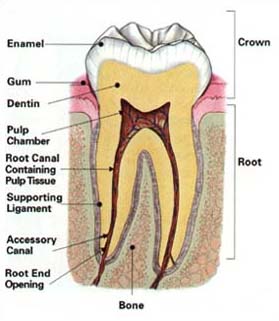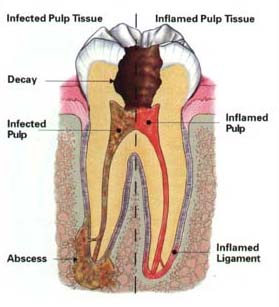What Is An Endodontist?
Your general dentist sometimes refers patients for consultation when the diagnosis is complicated or when treatment is more difficult than normal.
What Is Endodontics?
Endodontist are also experienced at finding the cause of oral and facial pain that has been difficult to diagnose.
Although General Dentists can perform endodontic treatment, patients are often referred to an Endodontist when the case is complicated or more difficult than usual. In order to understand Endodontic treatment, it helps to know something about the anatomy of a tooth.
The outside layer of the tooth is composed of a hard layer called enamel. Enamel is upported by an inner layer called dentin, which has at its center a soft tissue known as the pulp.
The pulp contains blood vessels, nerves and connective tissue that are responsible for forming the surrounding Dentin and Enamel during tooth development. The pulp receives its nourishment from vessels which enter the end of the root.
Although the pulp is important during development of the tooth, it is not necessary for function of the adult tooth.The tooth continues to be nourished by the tissues surrounding it even after the pulp is removed.


